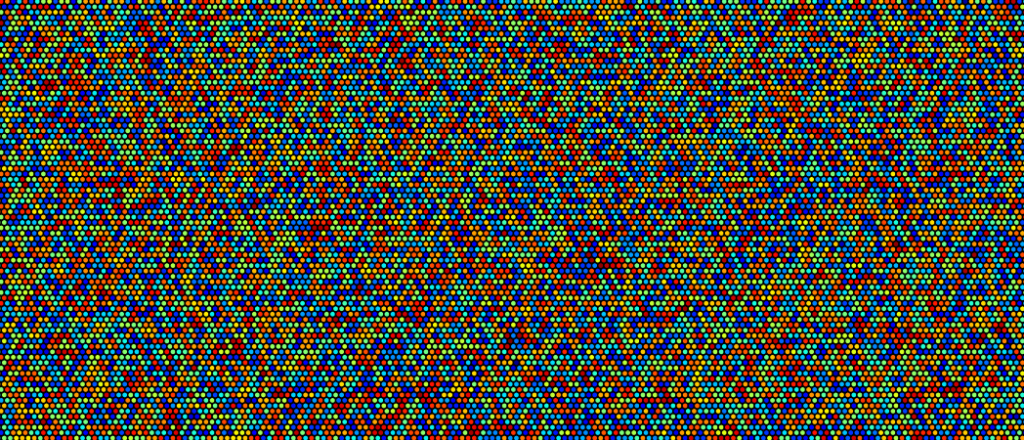
Center for High Entropy Alloy Catalysis (CHEAC)
Center leader:
Professor Jan Rossmeisl
Period:
Jan. 2020 - Dec. 2025
Application round:
10th Round
Host institution(s)
University of Copenhagen
Grant:
61,1 M DKK
Link:
Catalysis is the key for the future transition to renewable chemicals and fuels. Present day chemical production is based on oil and natural gas, and renewable chemicals and fuels cannot be efficiently catalyzed with existing materials. There is a need to discover new catalytic chemistry and catalyst materials. This is the grand challenge!
The Center for High Entropy Alloy Catalysis (CHEAC) targets electrochemical reactions for the production of renewable and high-value chemicals where the reaction energy is provided by electricity, thus paving the way for a greener society.
The central hypothesis for CHEAC is that high entropy alloys (HEAs) could be ideal catalysts.
HEAs consist of five or more different elements whose atomic positions in the crystal are determined by entropy and therefore mixed randomly. As a consequence, the active surface consists of millions of different possible atomic arrangements.
We propose a new approach to discovering catalytic materials. The key strategy is to span a range of catalytic activities on a single HEA surface. The random atomic arrangement in an HEA ensures that some surface sites will have exactly the optimal properties that can overcome the limitations of the uniform structures found in today’s catalysts. The stoichiometry of the HEA changes the likelihood that these different sites will occur. Thus, by controlling the ratio of the different elements in the HEA, it is possible to adjust the number of the most active sites and thereby also adjust the catalytic activity. The activity is therefore controlled by probability rather than microscopically, which is the conventional strategy.
This is a change of paradigm and opens a new field offering a statistical approach to catalyst discovery and design.
CHEAC is hosted by the Department of Chemistry at the University of Copenhagen.
